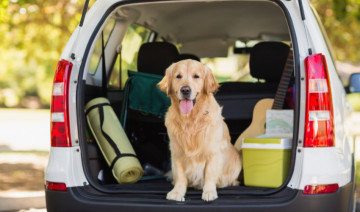Treating Seasonal Hot Spots on Pets
Hot spots can be uncomfortable for your pet, but how can you treat this itchy irritation? Understanding more about hot spots can help you give your pet relief...

Many dogs love car rides and behave well in vehicles as they see and smell the changing scenery. But what if your dog suffers from car sickness and motion sickness? Pet owners who understand these conditions can easily take steps to keep their dog feeling comfortable and avoid illness on car trips.
Just as in humans, car sickness is usually caused by an inner ear imbalance when a dog cannot adjust to different and conflicting sensations from its eyes, paws, and inner ear. This is a common problem in dogs, and is most often seen in puppies or younger dogs that may not yet have a fully developed inner ear or have perfected their own balance. Similarly, the stress of car travel can bring on motion sickness. Furthermore, motion sickness is not limited to a car, and dogs might get sick on a boat or during air travel when their equilibrium is disturbed.
Dogs cannot tell you when they are feeling nauseous, but there are car sickness symptoms you can stay alert for, such as:
These symptoms can signal a variety of other illnesses or conditions, but if the dog’s symptoms always appear when traveling and disappear quickly after the travel ends, motion sickness may be to blame.
There are several options for treating motion sickness and car sickness in dogs. While the effectiveness of each option will vary based on the severity of the animal’s sickness, popular treatments include:
Using multiple techniques to minimize dog carsickness will be most effective. While each dog will have a different reaction to car travel, working to ease discomfort and keep your pet healthy will keep car sickness at bay.
Most dogs outgrow carsickness by the time they are a year old, or basic steps can greatly ease their symptoms and make car travel more comfortable. If the symptoms do not disappear rapidly after the travel ends, however, or if the condition occurs suddenly and unexpectedly in an adult dog, it is best to consult a veterinarian about the possibility of other causes, such as ear infections or other problems. If the car sickness is very extreme, or if the vomit or diarrhea is bloody or otherwise unusual, emergency care may be necessary.
Car sickness can be unpleasant for any species, but if your dog suffers from travel illnesses, there are steps that can help. Understanding the condition and taking different steps to ease your pet’s symptoms can make both you and your dog more comfortable with every car trip you take.
We are constantly adding new specials to our site. Be sure to check back often!


Hot spots can be uncomfortable for your pet, but how can you treat this itchy irritation? Understanding more about hot spots can help you give your pet relief...
Comments